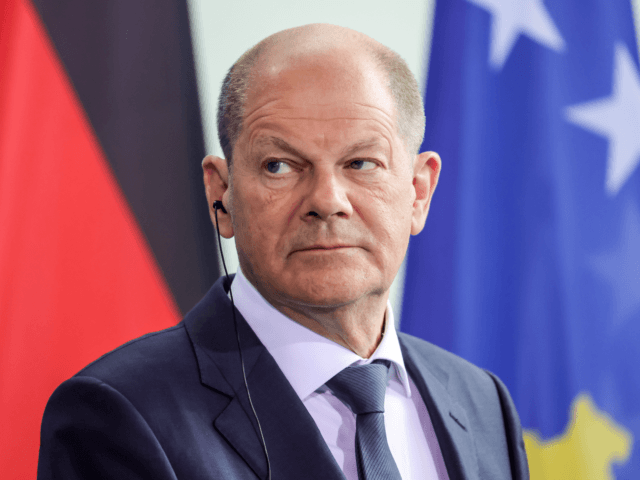The expansionist European Union project has the Western Balkans in its sights according to leftist German Chancellor Olaf Scholz, who has declared that the region “belongs” to the bloc.
Following separate meetings with the leaders Serbia and Kosovo on Wednesday in Berlin, Chancellor Olaf Scholz said that Germany would back the accession of both Serbia and Kosovo into the European Union, should they take the reforms needed to fall in line with EU requirements.
In a press conference with Serbian President Aleksandar Vucic, Scholz declared “The Western Balkans belong in Europe.”
Scholz, who is at the forefront of the push to establish an EU superstate, said according to Deutsche Welle that he will be travelling to the Western Balkans later this year to also hold talks with the leaders of Albania, Bosnia-Herzegovina, Montenegro, North Macedonia, and the leaders of Kosovo and Serbia.
“In the future all its countries must belong to the European Union,” Scholz said of the Western Balkans.
Kosovo’s Prime Minister Albin Kurti said that the Russian invasion of Ukraine, alongside its influence over the Balkans, was a threat to regional peace and stability, and therefore it has left his country with no choice but to pursue EU and NATO membership to ensure its security.
It is not clear, however, how quickly either country would be able to meet membership requirements, with Scholz noting that there is still need of reforms in terms of organised crime and press freedoms before Serbia would be able to meet EU standards.
The two countries would also likely need to settle the longstanding dispute over sovereignty, with Serbia still refusing to recognise Kosovo as an independent nation after it broke away from Serbia in 1999 and formally declared indpendence in 2008.
Though most EU nations recognise Kosovo’s sovereignty, Russia has sided with Serbia in the dispute, with the two countries sharing historical, political, religious, and cultural ties.
German Chancellor Scholz said that coming to an understanding on the issue will be “enormously important” for either country to gain acceptance into the EU.
Meanwhile, Germany has been active on another expansionist front, namely the acceptance of Sweden and Finland into the North Atlantic Treaty Organisation (NATO), with the German government declaring this week that it would support their entry into the defence treaty.
“If these two countries decide they should join the NATO alliance then they can count on our support,” Scholz said on Tuesday.
While the two Scandinavian countries had hitherto refrained from seeking entry into the defence alliance, the invasion of Ukraine has seen an increase in support among their populations for NATO membership.
It remains to be seen what the outcome will be of Berlin’s push to bring more countries into the EU and NATO, as many, such as Brexit leader Nigel Farage, have warned for years that unnecessary expansion of the European Union would only increase the risk of conflict with Russia.
Follow Kurt Zindulka on Twitter here @KurtZindulka

COMMENTS
Please let us know if you're having issues with commenting.